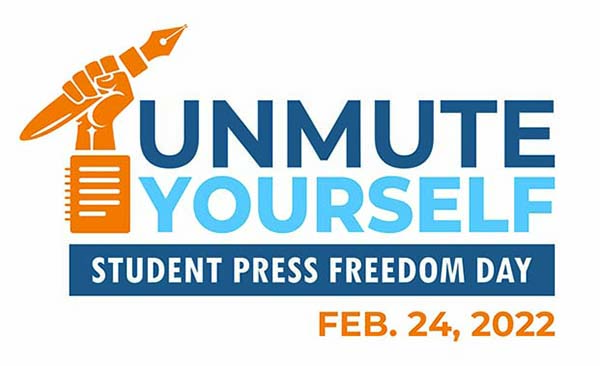By JORDAN GREEN, Editor-in-Chief

On holidays like Student Press Freedom Day (that’s today), journalists love to quote important American thought leaders who valiantly defended the First Amendment. (Despite the fact, of course, that some of those same leaders are slandered in the public dialogue the rest of the year).
One of the press’s favorite free speech quotes is from former U.S. President Thomas Jefferson, who wrote in a 1787 letter: “Were it left to me to decide whether we should have a government without newspapers, or newspapers without a government, I should not hesitate a moment to prefer the latter.”
Journalists often end the quote there. Ran out of space, I suppose. But a thinking reader (and journalist) would research and read on a little further. Jefferson’s next line in that letter read: “[B]ut I should mean that every man should receive those papers & be capable of reading them.”
There we go. Because a society in which information is plentiful, but none is useful, will not prosper.
So, what does all of this have to do with student newspapers – and press freedom, for that matter? More than you might think.
Student newspapers like the Northwestern News aim to provide students with information they need to have successful, meaningful educational careers. A big part of that is done by ensuring that the people in charge of our education – an institution’s bureaucratic leadership, its faculty and staff – are being honest and transparent.
College isn’t cheap, and our investment is supposed to pay dividends, educators say. But just like with the products we buy at the store, we as consumers expect quality control protocols to be in place. That’s what the newspaper does.
Student newspapers have a duty to show students what their money is being spent on and what university leaders are doing, if anything, to improve learning outcomes. We’ve been trying to do just that at the Northwestern News this year by talking about construction projects on campus, and by showing how our university leaders are responding to the coronavirus pandemic.
Student newspapers also have a duty to explore the inner workings of higher education.
That topic is on our minds right now as Northwestern searches for a new president. The university president is the most influential person here, at least when discussing the university’s finances. Students and taxpayers have a right to know how the people who spend their money are selected, and they also have a right to help choose them. Don’t we get what we pay for?
The Northwestern News, without stating a preferred successor to Dr. Cunningham, aims to highlight what students, faculty and staff want in a new leader. We’re doing that by talking with students about their hopes for the future of Northwestern, by highlighting the challenges our university faces and by shining a light on the search process.
We’ll unabashedly push for Northwestern to reveal to us who is applying for the job. As Americans, we choose people to represent us in countless public bodies, and universities should be treated no differently as taxpayer-funded and student-funded entities.
We have the right to do all of this and more thanks to the First Amendment of the U.S. Constitution. It was the first for a reason. But while exposing truth is a great mission, the greatest task we student journalists have is to make that information accessible and useful for all people.
We do that by distributing our newspaper for free around campus, as we always have. We also do it by publishing our work online at www.northwesternnews.rangerpulse.com, and on our Facebook page, Northwestern News (NWOSU).
The First Amendment grants us the right to report that which is truthful and accurate, and it tasks us to, as this year’s slogan says, “umute ourselves.”
Our job as student journalists is not to exact any particular kind of change, but to push officials to release all of the information students need to make their own decisions.
That’s what student newspapers do.
